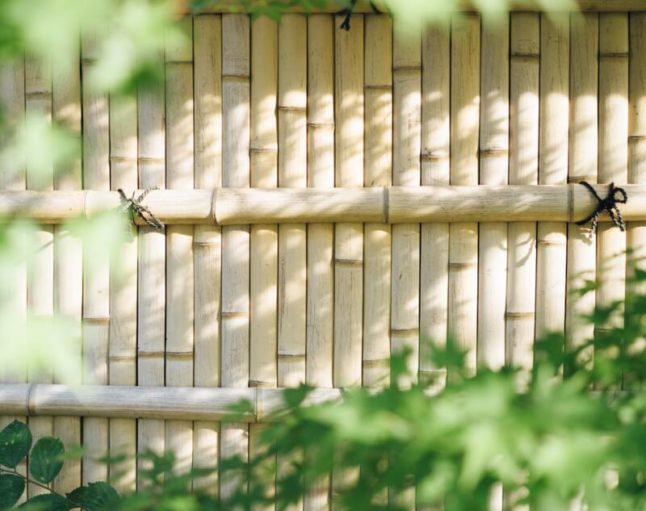All Categories
Featured

Selecting the best secure fencing material for your residential or commercial property is a decision that balances visual appeals, functionality, and budget plan. Among the most preferred choices, wood, plastic, and aluminum each offer special advantages and downsides. Comprehending these can help you make an enlightened selection that lines up with your demands. Here's a break down of the advantages and disadvantages of these three typical fence materials.
Wood Fencing. Timber secure fencing has actually been an ageless selection for homeowners due to its all-natural beauty and versatility.
Pros:. Aesthetic Appeal: Wood provides a timeless and warm look that complements a selection of architectural designs. Customizable: It can be painted, tarnished, or cut into special designs to fit individual choices. Cost-efficient: Initially, timber fencing can be an economical option contrasted to various other products. Eco-Friendly: Wood is a sustainable source and can be sustainably sourced. Cons:. High Maintenance: Timber needs routine securing, staining, or paint to prevent rot, insect damages, and weathering. Resilience Problems: Without appropriate care, wood can warp, fracture, or decay gradually, especially in areas with high moisture. Shorter Life-span: A wood fencing generally lasts 10-20 years, depending on the kind of wood and degree of upkeep. Timber is optimal for those who value a typical appearance and want to commit to its maintenance.
Plastic Fence. Plastic is a contemporary, low-maintenance secure fencing choice that has actually expanded in appeal in current years.

Pros:. Reduced Maintenance: Vinyl does not require paint, staining, or securing and can be easily cleansed with soap and water. Climate Resistant: It withstands severe weather conditions without decaying, rusting, or bending. Resilient: Vinyl fences can last 20-30 years with minimal maintenance. Range of Styles: Offered in many shades, designs, and appearances, some plastic choices imitate the appearance of timber. Disadvantages:. Greater Upfront Expense: Plastic secure fencing can be extra pricey at first contrasted to wood. Brittleness in Cold Weather condition: In severe cool, plastic may split or end up being brittle. Limited Repairs: Individual panels can be tough to replace, requiring mindful matching to the existing fence. Plastic is best matched for property owners looking for a durable, low-maintenance remedy with modern appearances.
Light Weight Aluminum Secure Fencing. Aluminum fencing is a lightweight and durable alternative, frequently chosen for its contemporary look and flexibility.
Pros:. Rust-Resistant: Light weight aluminum does not corrosion, making it a superb selection for damp or humid climates. Reduced Upkeep: Needs minimal maintenance and is very easy to tidy. Long lasting: While light-weight, light weight aluminum is solid enough to hold up against lots of ecological problems. Lengthy Life expectancy: Can last several years without considerable wear or degeneration. Variety of Styles: Offers a sophisticated and smooth look, frequently used for ornamental or decorative purposes. Cons:. Higher Expense: The initial financial investment for aluminum fencing is more than timber or plastic. Less Privacy: Aluminum fencings are frequently designed with open pickets, making them less efficient for personal privacy. Susceptible to Damages: Although sturdy, aluminum can be nicked by solid effects. Aluminum is perfect for those looking for a trendy, resilient option that calls for marginal care.
Making the Right Option. Each secure fencing material-- wood, light weight aluminum, and vinyl-- provides distinct benefits and disadvantages. Your decision should depend on your certain concerns, such as budget plan, maintenance choices, environment, and aesthetic goals:
Select timber if you enjoy a standard appearance and don't mind regular maintenance. Select plastic if you want a low-maintenance, weather-resistant fence with modern appeal. Go with aluminum if you prioritize toughness, corrosion resistance, and a streamlined layout. By weighing these benefits and drawbacks, you can choose a fencing product that boosts your residential property while satisfying your practical demands.
Latest Posts
Explore Oil Changes & More: Full Services Guide from Montclare Auto Repair
Published en
1 min read
Why Chicago Drivers Trust Montclare Auto Repair for Dependable Service and Great Savings
Published en
1 min read
Shield Your Financial Investment with Professional Rain Gutter Setup
Published en
1 min read
More
Latest Posts
Explore Oil Changes & More: Full Services Guide from Montclare Auto Repair
Published May 26, 25
1 min read
Why Chicago Drivers Trust Montclare Auto Repair for Dependable Service and Great Savings
Published May 25, 25
1 min read
Shield Your Financial Investment with Professional Rain Gutter Setup
Published May 24, 25
1 min read